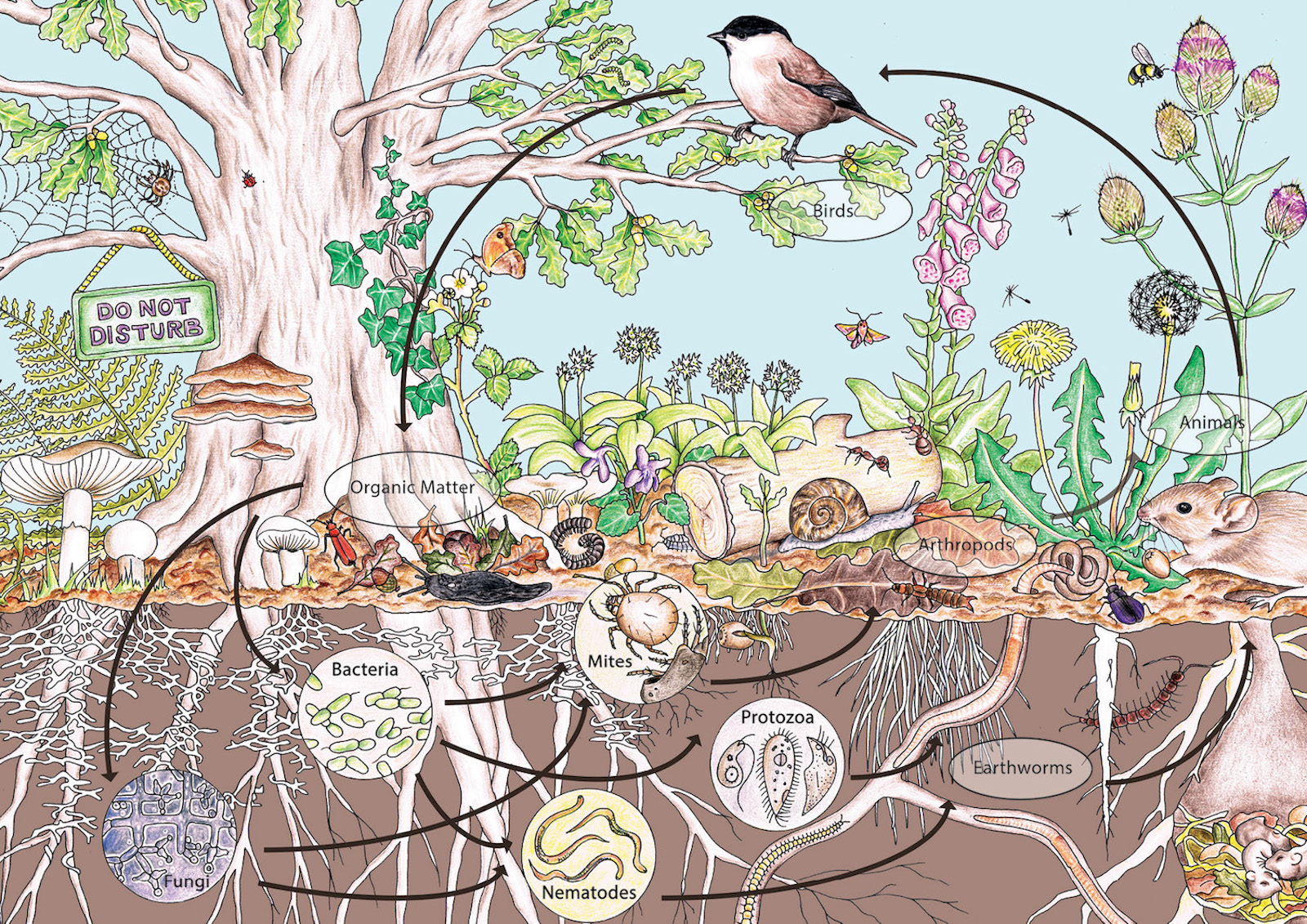Is it possible to produce abundant spaces that provide food, fibre and energy whilst building fertility and repairing the ecosystem? That’s what permaculture aims to do.
Image: https://transitionaustralia.net
‘Regeneration’
Andrew Collis
Ordinary Sunday 18, Year B
John 6:24-35
Jesus says: “You shouldn’t be working for perishable food, but for life-giving food that lasts …” (John 6:27). The gospel directs us beyond immediate needs and shallow pleasures, and toward a maturity “attaining to the whole measure of the fullness of Christ” (Ephesians 4:13).
Life-giving food that lasts … I imagine healthy cycles of water, carbon, production, consumption. Giving and receiving hospitality. This is a compelling passage, a text of vital significance – for me, for you, for us.
Though it causes discomfort and worse, lockdown offers opportunity to reflect – to appreciate the vision at the heart of the mission we have received. Jesus, we might say, calls attention to underlying principles and practices regarding bread – regarding food and drink, nourishment, sustainability, life.
South Sydney Uniting Church is a congregation … with a community … in a garden. We pray … we serve … we grow. Though to some extent fasting (unable to gather at the table), there is plenty for us to consider …
The gospel doesn’t direct us away from concerns about food – about bread or any other staple. It would be unfaithful and heretical to suggest that physical bread is unimportant, that “spiritual” bread is all that matters.
The gospel questions familiar notions of food (farming, shopping, baking, eating and drinking) that we might learn something world-affirming – “For the bread of life is the one who comes down from heaven and gives life to the world.”
We rest and we fast, we step back from eating and drinking, from the way we live our lives embodied in the world, that we might not take any of it for granted.
Thinking about food raises questions about farming. Paul Hawken’s book, Drawdown: The Most Comprehensive Plan Ever Proposed to Reverse Global Warming (2017), draws connections between food, soil, human and planetary health.
Drawdown refers to the point in the future when levels of greenhouse gases in the atmosphere stop climbing and start to steadily decline, thereby stopping catastrophic climate change – as quickly, safely and equitably as possible. Carbon is drawn down into the soil where it is converted into plant tissue.
The book, comprising 100 substantive solutions to the climate crisis, lauds holistic land management, Indigenous knowledge, innovation and leadership, as well as education for girls (women with more years of education have fewer, healthier children and actively manage their own reproductive health) …
… rooftop solar and onshore wind turbines, adoption of plant-rich diets and reduced food waste;
… cover crops (diverse, seasonal), perennials and trees (food forests and permaculture), composting and mob grazing or silvopasture (a lovely word);
… the miracles of photosynthesis, hydration and carbon sequestration – billions of micro-organisms in the porous-sphere (a mighty word).
I learn about the perils of tilling, which destroys the soil’s physical properties and ability to heal itself (microbes that build soil structure live on live roots and eat dead and decaying organic matter). I read about the evils of pesticides and herbicides (especially glyphosate) …
There is much to learn … and hope is a verb (Emily Ehlers) …
The gospel questions familiar notions of food (farming, shopping, baking, eating and drinking) that we might learn something world-affirming – “For the bread of life is the one who comes down from heaven and gives life to the world.”
I acknowledge the inspirational teaching of Chris Lodge who understands deeply the virtues of gardening – respectful observations and care/love for plants and animals – as social/political virtues.
Perhaps we see already (I suspect we do) that our Eden Community Garden is a spiritual and ecclesial place. Post-lockdown, there is much to draw down, much to discover there/here. In a word, life-giving food that lasts … regeneration. Amen.




